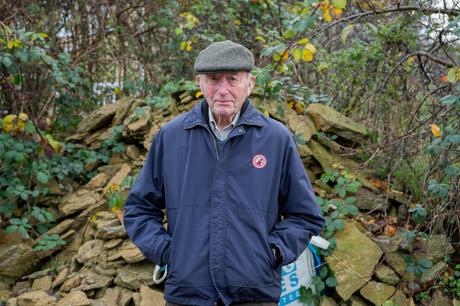
A farmer has said he would rather "die in jail" than pay fines for tearing down a border wall he built more than 40 years ago.
Ron Knight said he has spent six years in a 'living nightmare' since receiving a building enforcement notice from Somerset Council for removing part of a concrete wall to gain access to his land.
The 88-year-old built the wall himself in 1973, but when he knocked down part of it in 2017 he was told it was 'historic', in a conservation area, and that he needed planning permission.
He missed the deadline to appeal and has now appeared in court four times, racking up thousands of pounds in fines that he says he cannot afford.
In October, Knight was told by a judge that he would serve 45 days in jail unless he rebuilt the wall and paid back all fines.
But the pensioner, who said his pleas fell on deaf ears, said he would rather be locked up "if it's the last thing he does" than admit defeat.
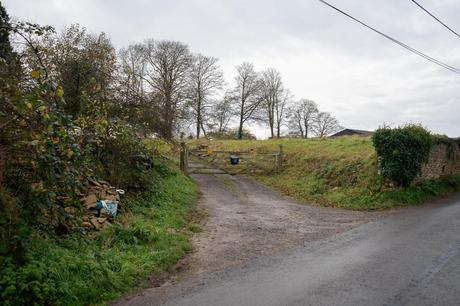
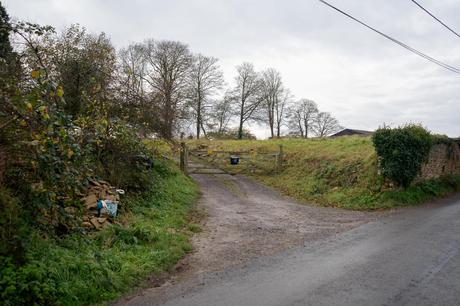
He said: "It makes us all sad. We are all sick and tired and have had enough. It doesn't matter what we say, they don't pay attention.
"Standing up for myself and being willing to go to jail is the only way I see to make anyone see the point.
"If going to jail is the last thing I do on this earth, I will do it to stop this madness."
Knight moved to the village of Milborne Port in Somerset in 1957 and bought Cannon Court Farm with his two brothers about five years later.
When he sold it to retire to Devon in 1990, he retained six hectares of land and three hectares of allotments.
But he said neighbors claimed he had "blocked access" to his land and his "right of way" through their own developments, leaving him with no choice but to remove part of the wall so he could gain access to the area to maintain it.


He added: "To put it politely, it has been a huge nuisance. It's been going on for six years now.
"After we sold we decided to keep six hectares of land and some allotments. We had priority going through that - it was the only way in.
The story continues
"It was then completely blocked off. I got two grandsons to help me take down part of the wall. We took out the foundation and made a hole so we could get out with the tractors and everything.
'I don't know who reported us to the council, but I had a letter saying that we had broken the law by excavating a protected area. I didn't know anything about a protected area and neither did my two brothers.
'We rebuilt that wall in 1973. They tried to claim that we had knocked down a historic wall. But if it is a historic wall, why wasn't it exactly the same as before?
'It is now half a meter lower than it was. It's just a flat piece of concrete.'
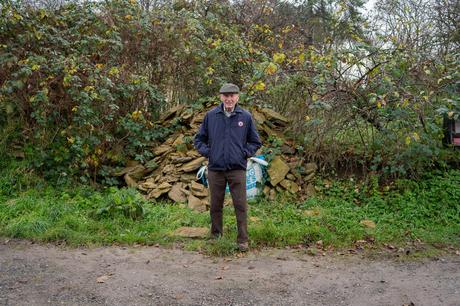
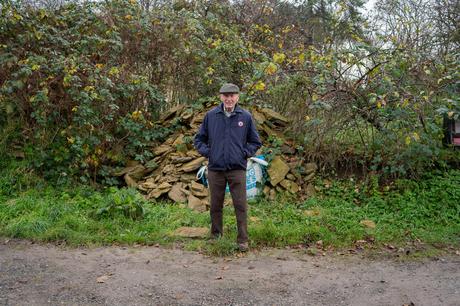
Knight, who has lived in Bampton, Devon, with his wife Jean, 81, since selling the farm, said they may be forced to sell their home if costs continue to rise.
He said: 'My argument is that if that wall was ours in 1973, it is our wall now. Why are they causing such a fuss? another way to enter.
"I have been to court four times and have been fined over £1,000 each time. I am now due back in court on January 22 but I have absolutely no intention of paying a fine. I would rather go to jail than to pay it and I mean that completely.
"I'm not paying for it - why should I when it's mine. I don't care what they say or what they do.
His daughter Linda Knight said fines now amount to £3,200 and accused the council of "victimisation".
She said: "My father is 88 and has health problems. He has a pacemaker and this affects his and my mother's health. He's really worried about it and it's been like a dark cloud hanging over us for the past six years. years."
"They have nothing, and my father said he would be willing to spend time in jail than pay for it. The city said it won't come to that, but he's not paying the fine, so I don't know what that is. the alternative.
'They just don't want to listen. It feels like victimhood. At the end of the day, he has knocked down part of a wall that belongs to him to maintain a piece of nature conservation area. Don't they want it to be taken care of? Did they otherwise think we could do that?
"It's time for them to show some heart and compassion."
'Unjustified damage'
Somerset Council defended its actions and said it was in the public interest to pursue the case, arguing Knight had caused "unjustified damage" to a protected local structure.
A spokesperson said: "The retrospective planning application requested the same requirements as the enforcement notice.
"We have applied the expediency test and the public interest test to every step of this case.
"We believe that the creation of the access, which will necessitate the demolition or removal of much of the historic stone wall and associated engineering works to the land behind it, fails to protect the established character of the conservation area and caused unjustified damage to a designated area. heritage asset."
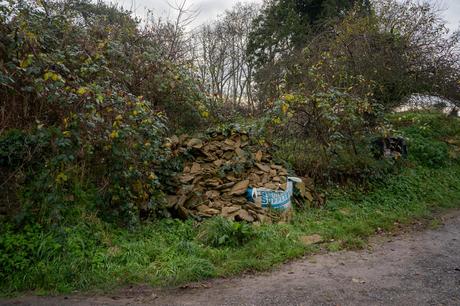
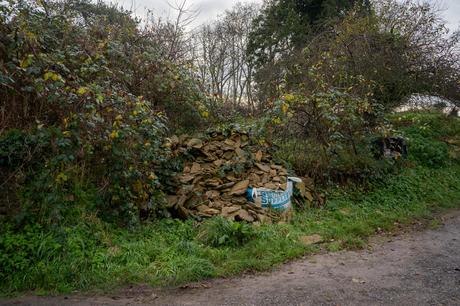
What are the rules for border walls in Britain?
According to the Homeowners Alliance, you can find out which fence or boundary wall is your responsibility by first looking at your property's title deeds, which should show the boundaries.
If you cannot find your scale plan in the paperwork you received when you purchased the property, you can request a copy of the title deeds for your property from the Land Registry.
Once you have the plan, you can see if there are any 'T's on any of the boundaries, the HOA says, indicating ownership and responsibility to maintain the wall or fence.
"If the 'T' is combined with another 'T' on the boundary so that it resembles an 'H,' it indicates that the boundary is a party wall/fence," the HOA guidance says.
"This means a joint responsibility for the maintenance of the wall/fence."
According to advice from Novello Surveyors, the Party Wall Act allows certain work to be carried out on boundary walls, including thickening or raising them, repairing or demolishing them, and rebuilding them where necessary.
But it adds: "It should be noted, however, that this is subject to notices being issued - your neighbor cannot simply go and work on a boundary line whenever he or she wants.
"Instead, they must set out what they intend to do and give you and any other adjacent owners written notice at least two months before they start work on the party wall. Although you cannot prevent work that is permitted under the law from being carried out, if you do not do so, you can raise a dispute as a result of the report. This requires a party wall surveyor to assess the situation and quote a price that determines how the work will be carried out.'
